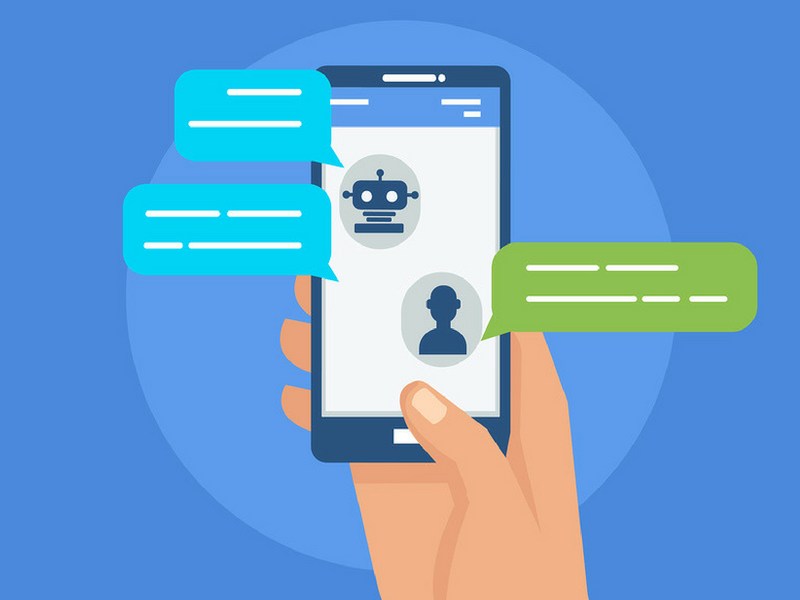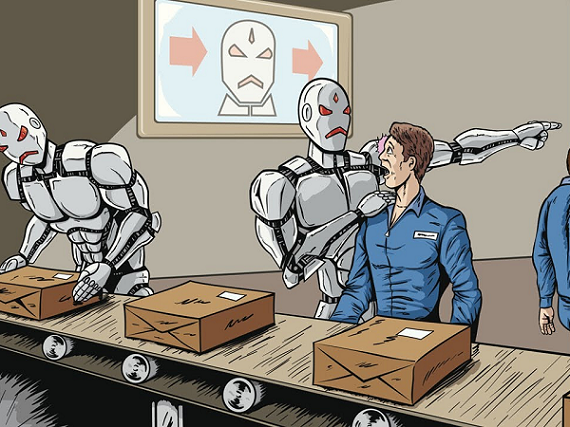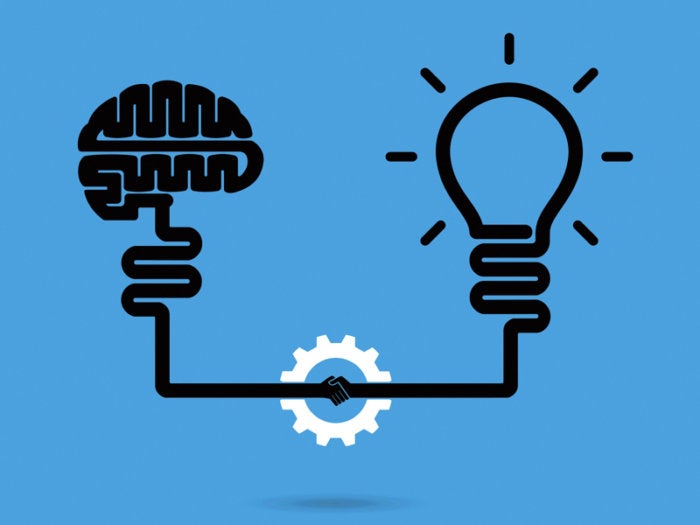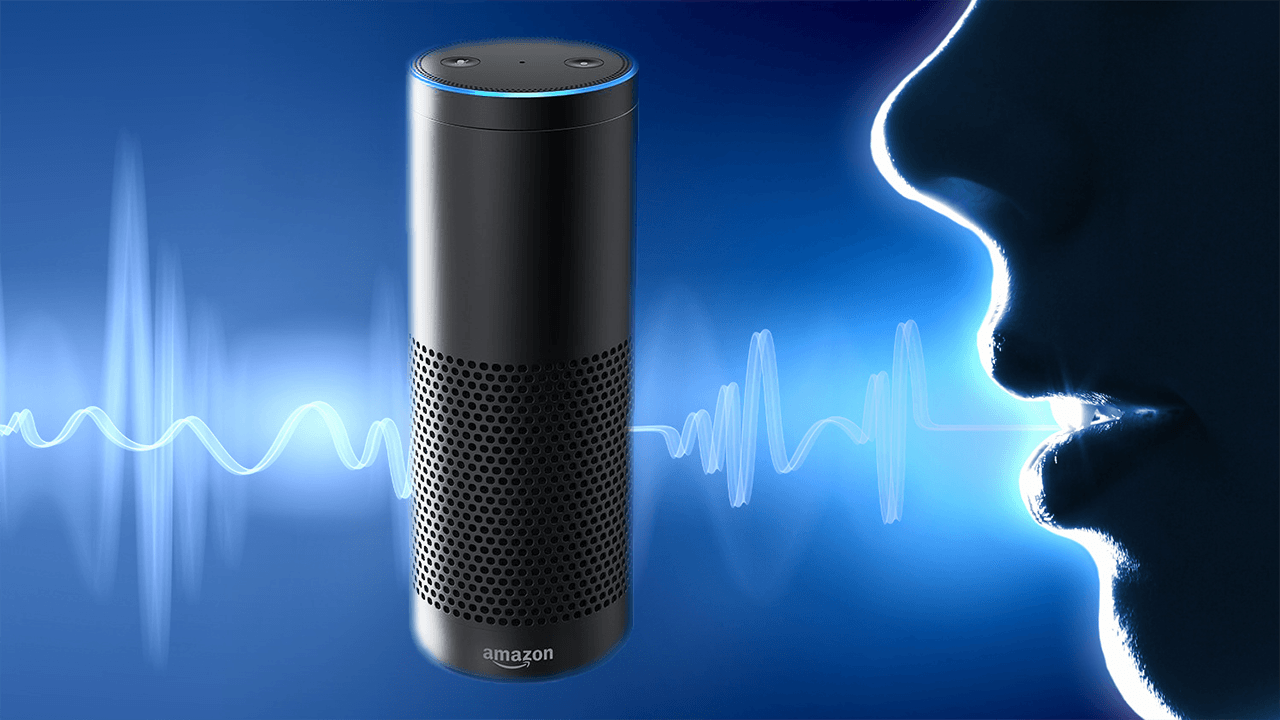Artificial intelligence is almost at the tipping point of breaking through and disrupting the energy sector.
The research suggests that this disruption will be one of the big revolutions in the 21st century.
China and the USA are at the forefront of AI innovations, whereas Europe is dramatically late in their investment and skills.
There is still time to react and build AI in Europe's energy sector; there are many advantages to do so, but we must be wary of the risks.

AI will create a much better 24/7 customer experience but also at a much lower cost.
We have seen robotics process automation in the back-office. It is an area that is quite mature already.
But the next wave, clearly, is in the front offices and the customer interaction on the phone but also through all the digital channels.
It is beginning already and there are examples on the market; Direct Energie is a supplier in France that has a chat bot named 'Jo' available to download on Facebook which you can ask basic questions about your energy consumption and the bot can help you to reduce your bill; the potential of it is huge.
It is beginning already and there are examples on the market; Direct Energie is a supplier in France that has a chat bot named 'Jo' available to download on Facebook which you can ask basic questions about your energy consumption and the bot can help you to reduce your bill; the potential of it is huge.
There is a great variety of new kinds of services around energy management providing more insights in your consumption, providing more advice.
 In the future, your home and everything within will be integrated in the internet of things.
In the future, your home and everything within will be integrated in the internet of things. Everything will be connected and software can monitor all of your equipment to make them work at the right time. Thanks to machine learning algorithms, perhaps Alexa will one day process all of your data based on when you are home, your habits and preferences, to better manage your equipment.
Google reduced the energy consumption of its data centre cooling units by 40%, by training the self-learning
algorithms of its DeepMind AI system to predict how hot data centres were going to get within the next hour.
Considering that Greenpeace predicted that the total global electricity consumption of data centres would account
for 12%, the implications for utilising AI to meet emissions targets set by the Climate Change Act are vast.
Gathering data to understand the habits and how industrial process work so that AI can automatically change the
habits or the process to reduce energy consumption, or even sell the energy to the market is very promising.
The delicate system balancing of UK electricity by the National Grid at a frequency of 50Hz may no longer need to
rest so heavily on the shoulders of one individual.
for 12%, the implications for utilising AI to meet emissions targets set by the Climate Change Act are vast.
Gathering data to understand the habits and how industrial process work so that AI can automatically change the
habits or the process to reduce energy consumption, or even sell the energy to the market is very promising.
The delicate system balancing of UK electricity by the National Grid at a frequency of 50Hz may no longer need to
rest so heavily on the shoulders of one individual.
AI opens up the possibility of almost everything that can help you improve your daily life.
 |
| Brooklyn Microgrid |
 |
| Nissan xStorage |
A transition towards consumers becoming prosumers is much more feasible using AI.
Consuming your own energy and selling the surplus to your neighbours sounds like science-fiction, but now it's possible.
We see some fascinating experiments in the world; Brooklyn Microgrid in New York is using block-chain technology to trade energy in the neighbourhood.
xStorage is a smart power storage for your home and car, which knows when it is best to store energy from your solar panel, or when it is best to sell it to the grid because of high energy cost, or when to share it with your neighbours and so on.
The tons of data that these new systems generate is being processed by AI to optimise and reallocate the resources among the new players. AI is going to be critical in helping to provide more services.
Reliance on AI for our energy networks does not come without concerns, a few major ones are:
- The potential for cyber attacks to leak your data means that data privacy is a big issue.
- This technology could only benefit those who can afford it.
- The goals of AI may not align with ours as it becomes more competent.
- Technological unemployment.
- AI could lead to a dystopia.


Although we should actively work on these concerns, we should also be optimistic:
- Research is being conducted on using AI to defend our systems to protect it from breaches.
- The cost of AI is falling as it is being developed.
- It is emphasised in development that AI goals should align with ours.
- Technology will drive the formation of new roles, positions and specialisation.
- Regulations exist to ensure reliability, transparency and ethical alignment e.g. GDPR.




AI can play a critical role to provide a better service in homes, in the cities, in the plants and in the grid.
So, the whole question is when do you step in?
Every utility will have their own strategy in there, but my advice would always be to stay in the front of the innovation. Do proof of concepts to understand who are the providers out there, get in touch with them, do some small little pilots in order to learn, build the skills, understand what works and what doesn't work.
Once you find the technology that is really able to scale, you can be the first one to bring it at a massive scale to the market, which is a competitive advantage.
Working with start-ups isn't a bad thing; but will you accept the resale of the solution that was developed on your data, to your competitors?
You should try to develop algorithms internally, not to provide this advantage to your other competitors.
You should try to develop algorithms internally, not to provide this advantage to your other competitors.
So you hear people complain these days that everything is becoming automated.
The robots are stealing our jobs.
AI is coming, the Terminator scenario.
But I think that ultimately people don't really have a reason to be scared.
Because I think that what artificial intelligence ultimately comes down to,
what outsourcing our cognition into the machines is really all about,
it's about amplifying the most powerful phenomenon in the universe, which is intelligence.



No comments:
Post a Comment